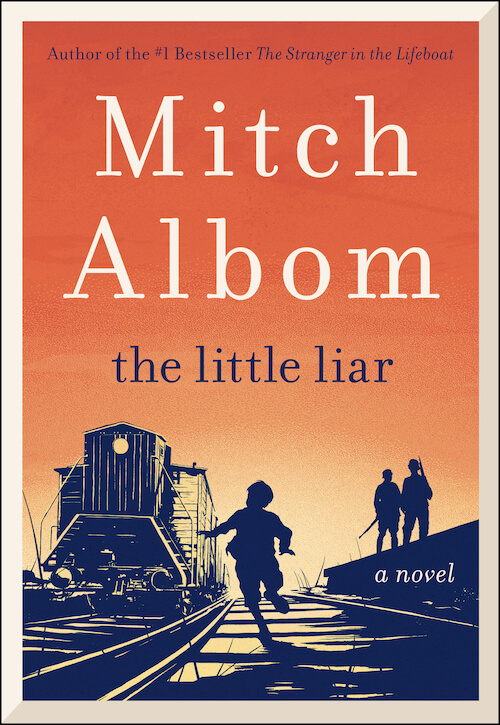
Mitch Albom’s “The Little Liar” is a masterfully crafted tale that stands out not just for its historical backdrop but for its unique narrative voice and the intricate lives of its four main characters. Narrated by Truth itself, a novel and thought-provoking perspective, this story delves into the heart-wrenching realities of the Holocaust and the moral dilemmas faced by those trying to survive in such harrowing times.
The central character, Nico Krispis, is a poignant figure, a young boy whose commitment to honesty is turned upside down by the brutal invasion of his Greek hometown by the Nazis. His journey from a beacon of truth to a reluctant fabricator of lies is a compelling exploration of the human spirit under duress. The novel poignantly illustrates how extreme circumstances can force even the most honest among us to reconsider our values and actions.
The interwoven lives of the other three characters – Nico’s brother Sebastian, his schoolmate Fanni, and a German officer – add layers of complexity to the narrative. Each character brings a unique perspective, highlighting the diverse ways individuals cope with and are affected by the atrocities of war. Sebastian and Fanni’s experiences, in particular, enrich the story, providing different angles on love, loyalty, and the corrosive effects of deceit.
Albom’s choice to have Truth itself narrate the story is both innovative and revealing. This narrative device allows for a deep exploration of the concept of truth – not just as a moral principle but as a survival tool and a means of redemption. It brings into focus the scriptural guidance against bearing false witness, challenging the reader to contemplate the sometimes-blurred line between truth and necessity.
What makes “The Little Liar” a standout work is Albom’s ability to weave these complex themes into a narrative that is both engaging and emotional. The novel doesn’t shy away from the harsh realities of the Holocaust, making it a difficult yet important read. It serves as a reminder of a dark chapter in human history, while also offering a message of hope and the enduring power of the human spirit.
In summary, “The Little Liar” is a remarkable piece of literature that offers a fresh perspective on the well-trodden path of World War II fiction. It’s a testament to Albom’s skill as a storyteller and his ability to tackle profound moral questions in an accessible and deeply moving way. This book is indeed a five-star read, offering valuable insights into the complexities of truth, deceit, and redemption.
In the context of masculinity, “The Little Liar” goes beyond a mere historical narrative to confront the essence of integrity and personal growth. Nico Krispis’s transformation under the shadow of war presents a profound examination of integrity—not as an unwavering pillar, but as a principle challenged and reshaped by life’s trials. For men, Nico’s journey from a paragon of honesty to a strategic liar in the face of existential threats mirrors the complex path toward understanding and redefining what it means to be virtuous. It underscores the idea that integrity is not about strict adherence to truth in all circumstances, but rather the ability to discern when to hold onto one’s principles and when to adapt them in the service of a greater good.
Moreover, the novel masterfully captures the theme of growth, especially poignant for men navigating the modern world’s moral complexities. Through Nico and the other characters’ experiences, Albom illustrates that growth often comes from facing difficult choices and learning from them, rather than from steadfastly clinging to black-and-white moral absolutes. The narrative invites men to contemplate how adversity and ethical dilemmas can serve as catalysts for personal development, encouraging a deeper understanding of oneself and one’s values.
“The Little Liar” thus serves as a compelling exploration of the nuanced pathways to integrity and growth for men. Albom’s narrative encourages a reflection on how the trials faced by Nico and his companions resonate with the struggles of every man striving to forge his identity and values in a world often marked by moral ambiguity. This novel, with its rich tapestry of characters and the innovative voice of Truth, provides a valuable lens through which to view our own journeys toward becoming men of integrity and depth.
In weaving these themes into the fabric of a story set against the backdrop of the Holocaust, Albom challenges readers to consider not just the historical importance of the narrative, but its timeless relevance to the quest for authenticity and maturity. “The Little Liar” is not just a testament to the human spirit’s resilience—it’s a mirror reflecting the enduring quest for integrity and growth in the journey of manhood.
